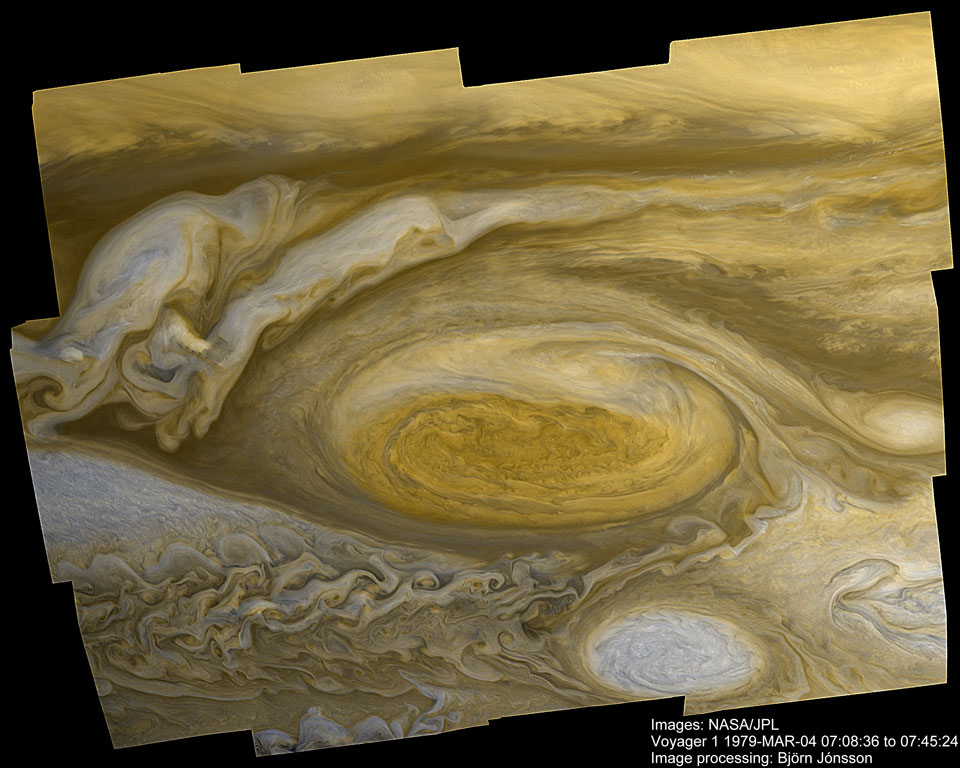Astronomy Picture of the Day
Discover the cosmos!
Each day a different image or photograph of our fascinating universe is
featured, along with a brief explanation written by a professional astronomer.
2014 May 18
 Jupiter's Great Red Spot from Voyager 1
Jupiter's Great Red Spot from Voyager 1
Image Credit:
NASA,
JPL;
Digital processing:
Björn Jónsson
(IAAA)
Explanation:
What will become of Jupiter's Great Red Spot?
Recorded as shrinking since the 1930s, the rate of the
Great Red Spot's size appears to have accelerated just in the past few years.
A hurricane larger than Earth, the
Great Red Spot has been
raging
at least as long as telescopes could see it.
Like most astronomical phenomena, the
Great Red Spot was neither predicted nor immediately understood after its discovery.
Although small eddies that feed into the
storm system seem to play a role, a more full understanding of the
gigantic storm cloud
remains a topic of continued research, and may result in a
better understanding of weather here on Earth.
The
above image
is a digital enhancement of an image of Jupiter taken in 1979 by the
Voyager 1 spacecraft as it zoomed by the Solar System's largest planet.
NASA's
Juno spacecraft
is currently heading
toward Jupiter
and will arrive in 2016.
Poll:
Do you like APOD's leading question?
Tomorrow's picture: meteors streaking
<
|
Archive
|
Index
|
Search
|
Calendar
|
RSS
|
Education
|
About APOD
|
Discuss
|
>
Authors & editors:
Robert Nemiroff
(
MTU) &
Jerry Bonnell (
UMCP)
NASA Official: Phillip Newman
Specific rights apply.
NASA Web
Privacy Policy and Important Notices
A service of:
ASD at
NASA /
GSFC
& Michigan Tech. U.

No comments:
Post a Comment
Please leave a comment-- or suggestions, particularly of topics and places you'd like to see covered